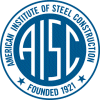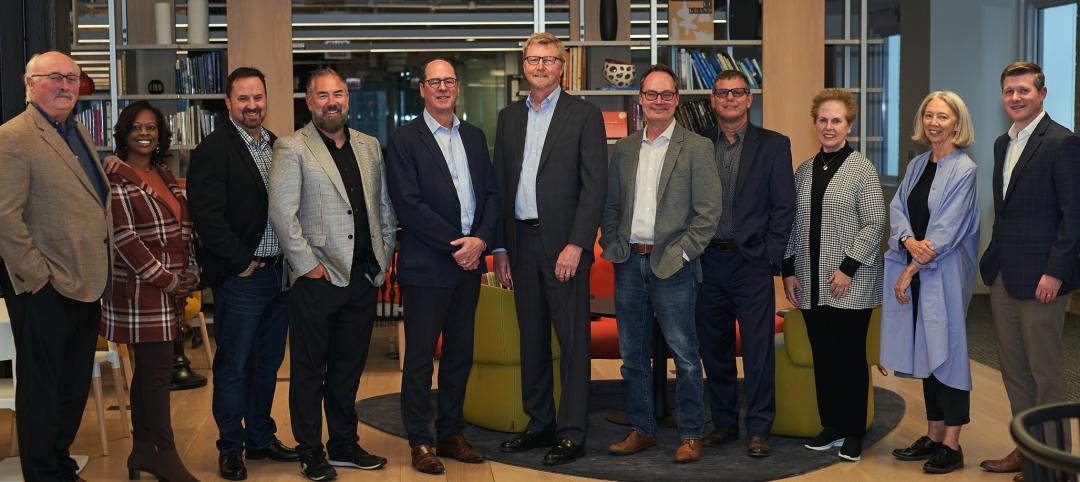The American Institute of Steel Construction (AISC) is working to bring that vision to reality by developing a three-step interoperability strategy to evaluate data exchanges and integrate structural steel information into buildingSMART's Industry Foundation Classes (IFC). IFC is an open and neutral data exchange format that covers multiple disciplines across the construction industry.
AISC has been at the forefront of advancing interoperability through open standards since adopting the CIMSteel Integration Standard (CIS/2) in 1998 as an open standard for the structural steel industry. Since then, however, the landscape of software interoperability and integration has changed dramatically and even after a decade of progress, the issue is not solved. In addition, CIS/2's "steel-only" format has meant that other solutions were needed as other disciplines began demanding data exchange.
These cumulative changes have led to AISC's new strategy to advance interoperability across the construction industry: assess and enhance data exchanges available today and integrate that knowledge into IFC, a common data schema that makes it possible to hold and exchange data between different proprietary software applications. Although IFC has yet to address some details of a building's life cycle, and does not yet cover the depth of data that CIS/2 encompasses, the IFC schema aspires to cover every aspect of design, procurement, manufacture and assembly, and operations and maintenance.
Acknowledging that raising IFC to the level required by the structural steel industry will take time, AISC has adopted a three-part strategy, outlined as follows:
- Short term: Ensure model data can be exchanged as needed by the structural steel industry, regardless of the nature of the exchange or format used
- Medium term: Promote IFC and make the format more accessible and understood by working with buildingSMART, other trade organizations, academia and subject experts.
- Long term: Facilitate the development and implementation of IFC to satisfy the needs of the structural steel industry.
This new strategy maintains AISC and the structural steel industry's leadership in interoperability and ensures that data related to structural steel can be exchanged up and down the supply chain and with other disciplines and trades. AISC holds the view that open standards will never be able to transfer every piece of data a user or client may want, or indeed that two software programs could exchange.
"A combination of open standard and proprietary enhancement will always be state of the art, but the key is to always be raising the quality of data exchanged within the open format," commented Chris Moor, AISC director of industry initiatives. "To that end, this overall strategy feeds itself: The short term strategy is an ongoing effort and takes advantage of the myriad of exchanges available, now or in the future, documenting them and learning from them - what data is exchanged and why. This information then forms the basis of long term goals to develop and implement IFC to a very high standard, raising the bar once more for open standards."
Added Deke Smith, executive director of the buildingSMART alliance, "I look at AISC as the gold standard for associations. AISC is implementing the profound changes necessary to transform the industry as a service to the constituents they represent. If all the market sectors had organizations representing them with this level of understanding and dedication to getting the job of interoperability done we would see a far more effective construction industry in the United States, one that was more competitive internationally."
More information about the evolution of interoperability and AISC's novel approach to moving it forward can be found in the Fall 2011 issue of the Journal of Building Information Modeling (JBIM), available for free downloading at http://www.wbdg.org/references/jbim.php. A copy of the article is also available on AISC's website, here. BD+C
Related Stories
Architects | Oct 20, 2022
Woolpert acquires Sheehan Nagle Hartray Architects, global experts in mission critical design
Woolpert has acquired Sheehan Nagle Hartray Architects, a full-service architecture firm that specializes in mission critical and technically challenging projects, interior design and predesign services for commercial, civic and education clients. SNHA has offices in Chicago and London.
Mixed-Use | Oct 20, 2022
ROI on resilient multifamily construction can be as high as 72%
A new study that measured the economic value of using FORTIFIED Multifamily, a voluntary beyond-code construction and re-roofing method developed by the Insurance Institute for Business & Home Safety (IBHS), found the return can be as high as 72%.
40 Under 40 | Oct 19, 2022
Meet the 40 Under 40 class of 2022
Each year, the editors of Building Design+Construction honor 40 architects engineers, contractors, and real estate developers as BD+C 40 Under 40 awards winners. These AEC professionals are recognized for their career achievements, passion for the AEC profession, involvement with AEC industry organizations, and service to their communities.
BAS and Security | Oct 19, 2022
The biggest cybersecurity threats in commercial real estate, and how to mitigate them
Coleman Wolf, Senior Security Systems Consultant with global engineering firm ESD, outlines the top-three cybersecurity threats to commercial and institutional building owners and property managers, and offers advice on how to deter and defend against hackers.
Designers | Oct 19, 2022
Architecture Billings Index moderates but remains healthy
For the twentieth consecutive month architecture firms reported increasing demand for design services in September, according to a new report today from The American Institute of Architects (AIA).
Building Team | Oct 18, 2022
Brasfield & Gorrie chairman’s home vandalized by anti-development activists
Activists vandalized the home and vehicles of Miller Gorrie, chairman of Birmingham-based Brasfield & Gorrie, in protest of a planned $90 million, 85-acre police, fire and public safety training center in Atlanta.
Mixed-Use | Oct 18, 2022
Mixed-use San Diego tower inspired by coastal experience and luxury travel
The new 525 Olive mixed use San Diego tower was inspired by the coastal experience and luxury travel.
University Buildings | Oct 18, 2022
A carbon-neutral-ready university campus opens in Hong Kong
In early September, the Hong Kong University of Science and Technology (HKUST) officially opened its new, KPF-designed campus in Nansha, Guangzhou (GZ).
Market Data | Oct 17, 2022
Calling all AEC professionals! BD+C editors need your expertise for our 2023 market forecast survey
The BD+C editorial team needs your help with an important research project. We are conducting research to understand the current state of the U.S. design and construction industry.
Codes and Standards | Oct 17, 2022
Ambitious state EV adoption goals put pressure on multifamily owners to provide chargers
California’s recently announced ban on the sale of new gas-powered vehicles starting in 2035—and New York’s recent decision to follow suit—are putting pressure on multifamily property owners to install charging stations for tenants.

















